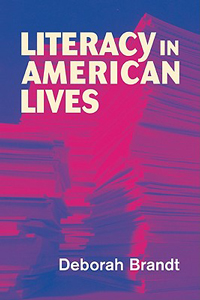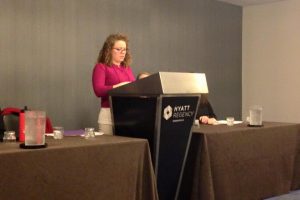 by Timothy Leonard Midwestern Student Representative, 2013-2015 Indiana University-Purdue University Fort Wayne, Fort Wayne, IN As I enter my senior year as a dual major in English Literature and English Writing, I have come to appreciate the number of different avenues an individual can take to earn an English degree. At my college, Indiana University-Purdue University Fort Wayne, there are a total of five concentrations a student can choose to pursue an English degree. Within these concentrations there are a number of possibilities a student can specialize in. For example, by having a concentration in English literature, an individual can focus on children’s literature, Elizabethan poetry, 19th century British literature, or many more. This example breaks the stereotype that English majors all read and write the same material, because we don’t. The number of different combinations to become an English major made me wonder, “what makes an individual pick a certain concentration?” As I pondered this question, my thoughts took me back to a course I recently completed, an introduction to literary studies, yet another example of a path to an English degree.
by Timothy Leonard Midwestern Student Representative, 2013-2015 Indiana University-Purdue University Fort Wayne, Fort Wayne, IN As I enter my senior year as a dual major in English Literature and English Writing, I have come to appreciate the number of different avenues an individual can take to earn an English degree. At my college, Indiana University-Purdue University Fort Wayne, there are a total of five concentrations a student can choose to pursue an English degree. Within these concentrations there are a number of possibilities a student can specialize in. For example, by having a concentration in English literature, an individual can focus on children’s literature, Elizabethan poetry, 19th century British literature, or many more. This example breaks the stereotype that English majors all read and write the same material, because we don’t. The number of different combinations to become an English major made me wonder, “what makes an individual pick a certain concentration?” As I pondered this question, my thoughts took me back to a course I recently completed, an introduction to literary studies, yet another example of a path to an English degree.  One of the texts assigned for the course was Literacy In American Lives, by Deborah Brandt. Brandt investigates multiple individuals and shows how their literary skills were affected by their environments, along with other factors. For me, one word from her work stands out as a major factor in explaining why individuals choose to pursue certain avenues in the English concentrations: experience. After speaking with fellow English majors, I found I was onto something. Each individual expressed how someone or something helped to influence them to read or to write certain aspects of the English genre. It was also clear that individuals who had a negative experience did not want to return or voluntarily try to improve their experience. This made me think about how my own experiences have impacted my literary choices. I am currently pursuing a concentration in 19th century British fiction. Many of my friends have asked me, “Why not American fiction?” My answer has to do with my first experience with American literature. In the 6th grade, I had a teacher who didn’t care about the subject and didn’t care if we did our work. If it weren’t for high school, I probably wouldn’t have picked up a 19th century American novel again. On the other hand, in 7th grade I had a teacher who was very passionate about British literature, more specifically 19th century British literature. This was my first experience with British writing and it was that teacher’s passion for the genre that motivated me to read more 19th century British literature. So it seems our experiences are the bricks that lay the path to our literary journey. We all have likes and dislikes for different English pursuits. It’s why some choose to write poetry and not write non-fiction, why some choose to be literature majors and not writing majors, and in my case, why my concentration is 19th century British literature and not 19th century American literature. It’s our own personal experiences, both negative and positive, that make us want to pursue our own choices. As English majors, we should strive not to criticize another individual’s literary journey. We all are unique in our own way, including the paths we choose to follow.
One of the texts assigned for the course was Literacy In American Lives, by Deborah Brandt. Brandt investigates multiple individuals and shows how their literary skills were affected by their environments, along with other factors. For me, one word from her work stands out as a major factor in explaining why individuals choose to pursue certain avenues in the English concentrations: experience. After speaking with fellow English majors, I found I was onto something. Each individual expressed how someone or something helped to influence them to read or to write certain aspects of the English genre. It was also clear that individuals who had a negative experience did not want to return or voluntarily try to improve their experience. This made me think about how my own experiences have impacted my literary choices. I am currently pursuing a concentration in 19th century British fiction. Many of my friends have asked me, “Why not American fiction?” My answer has to do with my first experience with American literature. In the 6th grade, I had a teacher who didn’t care about the subject and didn’t care if we did our work. If it weren’t for high school, I probably wouldn’t have picked up a 19th century American novel again. On the other hand, in 7th grade I had a teacher who was very passionate about British literature, more specifically 19th century British literature. This was my first experience with British writing and it was that teacher’s passion for the genre that motivated me to read more 19th century British literature. So it seems our experiences are the bricks that lay the path to our literary journey. We all have likes and dislikes for different English pursuits. It’s why some choose to write poetry and not write non-fiction, why some choose to be literature majors and not writing majors, and in my case, why my concentration is 19th century British literature and not 19th century American literature. It’s our own personal experiences, both negative and positive, that make us want to pursue our own choices. As English majors, we should strive not to criticize another individual’s literary journey. We all are unique in our own way, including the paths we choose to follow.




